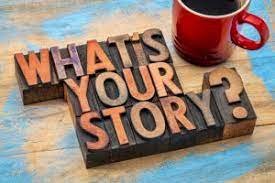journalism training
Julian Sher has trained in newsrooms around the world, all through Europe and North America and Africa, as well as in the Middle East and Bangladesh. Contact Julian directly for more information about in-person or Zoom training.
For a sample of the training, see the slideshows below available for download in PDF format as well as some videos of my courses.
You can also see more videos about journalism on My YouTube Channel.
PDF SLIDESHOWS TO DOWNLOAD
>Slideshows in French >Slideshows in Arabic >Slideshows in Bangla >Slideshows in other languages
INVESTIGATIVE JOURNALISM:
The Investigative Interview
We've all done it – blown a key interview or missed a vital question. With plenty of examples from Trump to Trudeau, this course is about how to dramatically rethink the way you approach interviews, master the basic rules of tough interviews, and then learn how to break them when needed.
PDF downloads are available here in English, French and Arabic.
WATCH A VIDEO OF THIS PRESENTATION BELOW.
Organizing Complex Investigations
How do you organize a difficult investigation? Where do you start? How do you figure out your priorities and your strategy? How do you organize your work, sources, interviews and your writing? Using concrete examples, this hands-on guide will make your life easier when it comes to the big project.
PDF downloads are available in English, Arabic and Bangla.
Investigative Story-telling
You've done the digging, but you have to tell a story, not a scoop. This course looks at writing, focus and story structure so that you can turn your investigation into a great tale that will grip readers and viewers. PDF downloads available in English and Arabic.
WRITING FOR NEWSPAPERS:
Making your news stories come alive
We report scoops. but we tell stories. Ditch the old “inverted pyramid” style except for breaking news. Build scenes, not paragraphs.
See also the slideshows below on CHARACTERS, FOCUS and NARRATIVE ARC
THE pillars OF good STORYTELLING:
CHARACTERS, FOCUS, NARRATIVE ARC:
THE PILLARS OF GOOD STORY TELLING
Your characters have to go on a journey and you need to take your readers/viewers/listeners with them.
You need a narrative arc with a beginning, middle and end and a mounting tension.
You need a focus that makes it clear what the story is about, why I should care - and helps you throw out the clutter.
WRITING BOOKS:
WRITING HISTORICAL NON-FICTION
(A Quebec Writers Federation workshop, November 12, 2023)
Writing original and entertaining non-fiction is hard enough.But when you set about writing historical non-fiction about true events and real characters that happened many years, decades or even centuries ago, your challenges only increase. You cannot interview your main characters, they are long dead. Archives may be hard to access or expensive. How do you bring to life your locations and scenes and make them accessible and understandable to the modern-day reader?
PITCHING YOUR STORY
You may have a great idea but how do you organize your thoughts and focus your story to make the strongest pitch possible.
Download a short form to help you make the best presentation. Available in English, Arabic and Bangla.
videos of courses:
MASTERING THE NEWS INTERVIEW
.We've all done it – blown a key interview or missed a vital question. With plenty of examples from Trump to Trudeau, this course is about how to dramatically rethink the way you approach interviews, master the basic rules of tough interviews, and then learn how to break them when needed. A video recording of a 90-minute PowerPoint presentation given to reporters at CivilBeat.org, in Honolulu, February 25, 2025
Making your news stories come alive
We report scoops. but we tell stories. Ditch the old “inverted pyramid” style except for breaking news. Build scenes, not paragraphs. Show don’t tell. Write for the five senses. A recording of a two-hour presentation made to the Quebec Community Newspapers Association in February, 2025.
Investigative Story-telling:course Video
ARIJ 2017
Video of a 90-minute class given at the Arab Reporters for Investigative Journalism in Jordan, 2017.
The Camera as Story-teller: Making Investigative TV Documentaries
November 2020 Zoom lecture at Concordia University in the Journalism Department with Francine Pelletier.
ASKING THE HARD QUESTIONS
Zoom seminar on interviewing techniques for the International Center for Journalists. May, 2020.
Read the "Key Quotes" from the class
COMMENT POSER LES QUESTIONS DIFFICILES
Comment bien enquêter et mener une bonne investigation? Comment poser des questions difficiles lorsque vous recherchez des réponses auprès des médecins, des scientifiques, des chefs d’entreprises ou des responsables gouvernementaux sur la pandémie du coronavirus ?













